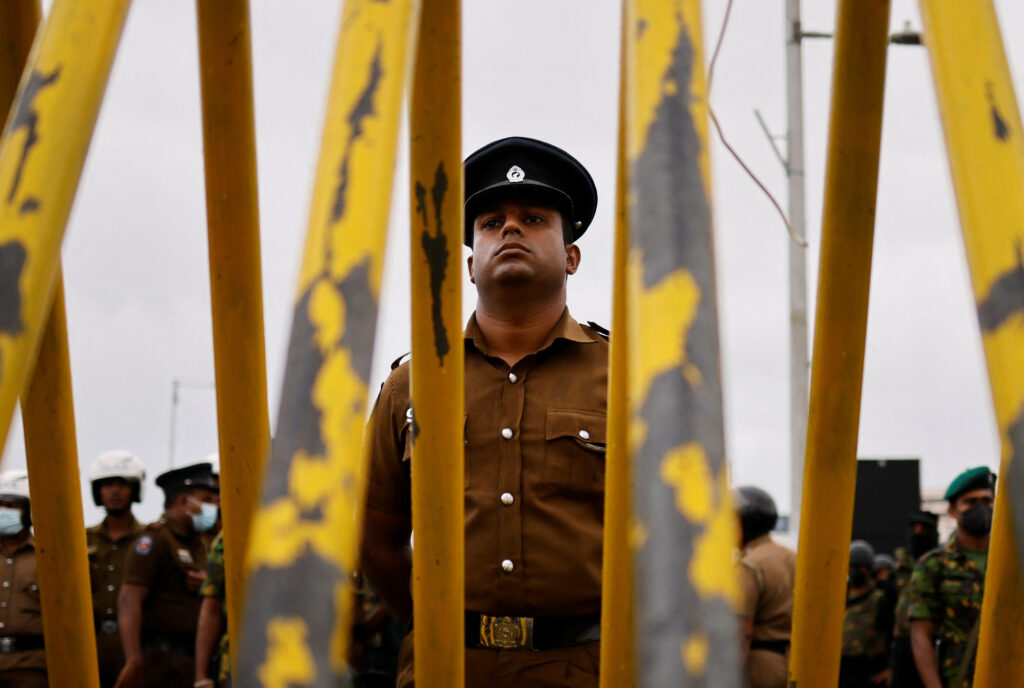332
Senior Sri Lankan lawmaker Dinesh Gunawardena was sworn in on Friday as the new prime minister, his office said, a day after the swearing-in of a new president as the Indian Ocean nation grapples with its worst economic crisis in decades.
The event came just hours after security forces raided a protest camp on government grounds in the main city of Colombo and cleared part of it, with at least nine arrests, as the new administration moves to crack down on protesters.
A former minister from the Podujana Peramuna party, Gunawardena took the oath of office in the presence of Wickremesinghe, seated in front of uniformed military officers in a room packed with lawmakers and officials.
The rest of the cabinet is expected to be sworn in later on Friday.
Sri Lanka’s crisis, the result of economic mismanagement and the fallout of conflict in Ukraine, sparked months of mass protests and eventually forced then president Gotabaya Rajapaksa to flee the country.
Wickremesinghe declared a state of emergency while seeking a bailout from the International Monetary Fund.
How the crisis unfolded
March 31, 2022: Demonstrators march to President Gotabaya Rajapaksa’s private residence to protest over worsening economic conditions.
April 3: Rajapaksa dissolves the cabinet, which includes his younger brother Basil Rajapaksa as finance minister, but elder brother Mahinda Rajapaksa continues as prime minister.
April 9: Protests escalate, with sit-in demonstrations outside Rajapaksa’s office calling for the removal of the president to pave the way for political reforms.
May 9: Following widespread clashes between pro- and anti-government protesters, Prime Minister Mahinda Rajapaksa resigns. Countrywide violence leaves nine dead and about 300 injured.
July 9: President Gotabaya Rajapaksa informs the parliamentary speaker that he plans to step down on July 13, after protesters storm into the official presidential residence. Prime Minister Ranil Wickremesinghe says he is willing to resign too.
July 13: President Gotabaya Rajapaksa flees Sri Lanka, initially going to Maldives, before moving on to Singapore.
July 14: Rajapaksa submits a letter of resignation hours after arriving in Singapore, becoming the first Sri Lankan president to quit while in office.
July 15: Parliament accepts Rajapaksa’s resignation. Ranil Wickremesinghe, a six-time prime minister, is sworn in as acting president.
July 18: Wickremesinghe declares state of emergency.
July 20: Wickremesinghe wins vote in parliament to become new president. A large section of the public remains unhappy with parliament’s choice, because of Wickremesinghe’s past association with Rajapaksa.
July 22: Sri Lankan security forces raid a protest camp occupying government grounds in the main city of Colombo and cleared out a section of it, arresting nine people. Later the same day, Dinesh Gunawardena is sworn in as prime minister, although he too has been perceived as an ally of Rajapaksa.
REUTERS


